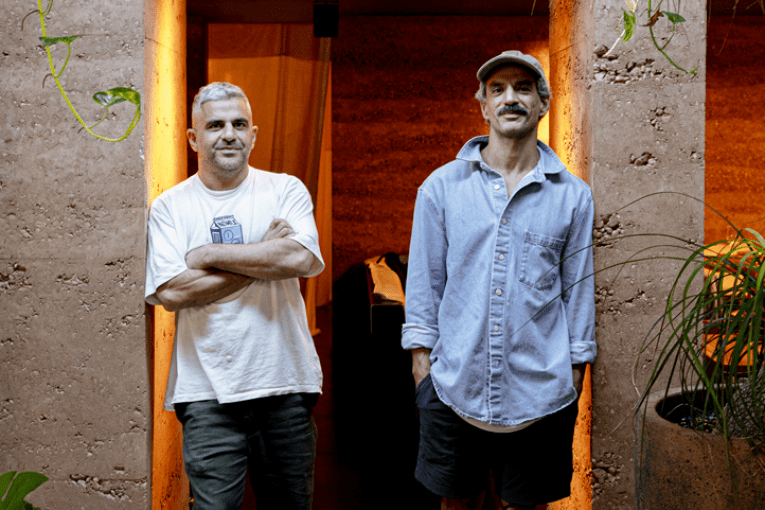Aspen’s loss is Queensland’s gain as ‘holiday cash’ gets pumped into local start-ups
Not every business investor is consumed with making a profit. Some are more interested in making a difference, writes Michael Blucher


Venture capitalist Llew Jury says not everything is about making a profit (Image: Sprint Ventures).
Who would have thought young Australian entrepreneurs would have been among the beneficiaries of Covid-cancelled family ski trips to Colorado and Whistler.
But that’s exactly how it’s played out, as well to do business types have ventured into interesting spaces to invest the cash they’ve not spent in lockdown.
The 18 months we’ve endured, living with Covid has seen a significant spike in venture capital funds, with investors looking beyond the traditional financial dumping ground of the ASX and other more conservative managed funds.
“Let’s call it ‘at risk’ money, because that’s essentially what it is,” says Llew Jury, the founder of Sprint, one of numerous boutique investor groups that have emerged in the past few years, along with the likes of Black Sheep, Ten13 and Mandalay.
“These guys would have been skiing in Aspen if they’d been allowed, so in their mind, the money is already spent. They think instead – why not invest it in something a little speculative? It’s not like it’s much good as cash in the bank at the moment!”
Sprint closed its first venture capital fund in late 2020, commencing with investment in eight different startup businesses, all with a tech focus, and longer term potential of global scalability.
As much as the Sprint investment strategy revolves around great ideas, business concepts that tackle and solve real world problems – they’re also backing the founder (or founders) of the business – their passion, their drive, their energy, and importantly their “coach-ability”.
“Founder’s first is a major platform of our business model;” Jury says. “We identify who we believe to be the right people, and then work with them very closely to develop and grow their idea. Other venture capital funds are less hands on – the investors remain at arm’s length of the business.
“There’s no definitive right or wrong way of doing it, but our experience tells us that investors in this space typically have multiple but clear motivations for getting involved.
One reason, he says is “relevance”.
“They might be independently wealthy or even semi retired, but they don’t want to fade off into the sunset,” Jury says. “They want stay relevant – to feel like they are still part of the action. They want to continue to put to good use all their experience and knowledge.
“Secondly, they want to give back. Invariably, they’ve done well – now they figure it’s time to lend a helping hand to somebody who in all likelihood, is a probably just like them at an earlier age – wide-eyed, eager, ambitious. It’s the ESG (Environmental, Social, Governance) piece. Helping create a better future.
“Beyond that, they want to a have a runner in the race – an interest. It’s much the same reason business people get into thoroughbred racing or own sports franchises. It’s exciting. They don’t exactly want to burn money – but making an immediate profit isn’t the primary objective.”
If there’s a fourth reason, it stems from being able to have a direct impact on the outcome or performance of the business. Investing in the stock market or managed funds, you’re a passive observer, sitting in the stands watching on, hoping others get it right.
In the venture capital space, the investors are in the frontline, mentoring and guiding young entrepreneurs in the grey-haired ways of the world.
In the first year alone, Sprint reviewed almost 500 different startups, “applicants” across a range of different industries, predominantly aged care, health, ecommerce and property, but all with a tech focus.
They invested in just eight, shining a bright light on the competitiveness of the space, and the number of young people who now live outside the boundaries of the traditional career paths – either professional or manual.
Among their higher profile plays in their first intake, a tech offering called “YouPay”, which is linked to the payment of transactions, but instead of it being deferred, it’s handed over to a supporting party, most commonly a parent or guardian. The debt stays within the family.
“We’re genuinely excited about YouPay as it’s the next step in the ‘buy now pay later sector’,” Jury says.
“Think of young Johnny or Jennifer who love tennis and need a new racquet. They can add the carbon fibre Yonex to the on-line shopping cart and then send the YouPay link to the bank of Mum and Dad – AKA, their walking ATMs! – to pay for it. The retailer, for example Rebel Sport or the Milton Tennis Centre, pick up two customers in the process – the shopper and the payer.”
Jury is very realistic about the collective prospects of Sprint’s investment portfolio, and for that matter, the portfolio of all the other venture capital funds.
The likelihood of every investment succeeding, he says is not dissimilar to the odds in horse racing. For every Atlassian or Canva – the start-up equivalent of Vo Rogue or Black Caviar – there’s going to be thousands of plodders, who never make it out of the stalls in a Gympie Maiden.
“Nobody in the venture capital space is under any illusion as to how hard it is to crack the big time – to replicate what Mike Cannon Brooks and Scott Farquhar for instance have achieved.
“That’s the nature of the sector. It’s highly speculative. Venture capital is raised at the very top of the funnel – private equity arrives much later, after the wheat has been sorted from the chaff. The returns on investment are more assured, but potentially less lucrative.
“Typically, our investors won’t expect to see a capital return for five plus years – perhaps even longer. But as we’ve established, the promise of a dividend style return is not why they’re involved in the first place. They’re more likely to be driven by wanting to help the next generation. And they’ve also got a great BBQ story to tell!”
Interestingly, instead of there being a fierce rivalry between the new VC businesses that have spawned over the past couple of years, Llew Jury says there’s a strong spirit of co-operation – almost a kinship.
One fund might be impressed with a start-up concept but be fully subscribed, so they’ll send the founder the way of one of the others who they think would be suitable.
“We’re not in direct competition with one another per se,” Jury says. “We’re all part of the same investment community, looking to provide opportunities through financial support and guidance. The more success, the merrier. Nobody wants anybody to fail.
“Many feel fortunate to have been on the receiving end of support over the course of their career – now there’s an opportunity to directly contribute, via venture capital, in raising the next Queensland start-up unicorn, or indirectly, our next tennis prodigy.”












